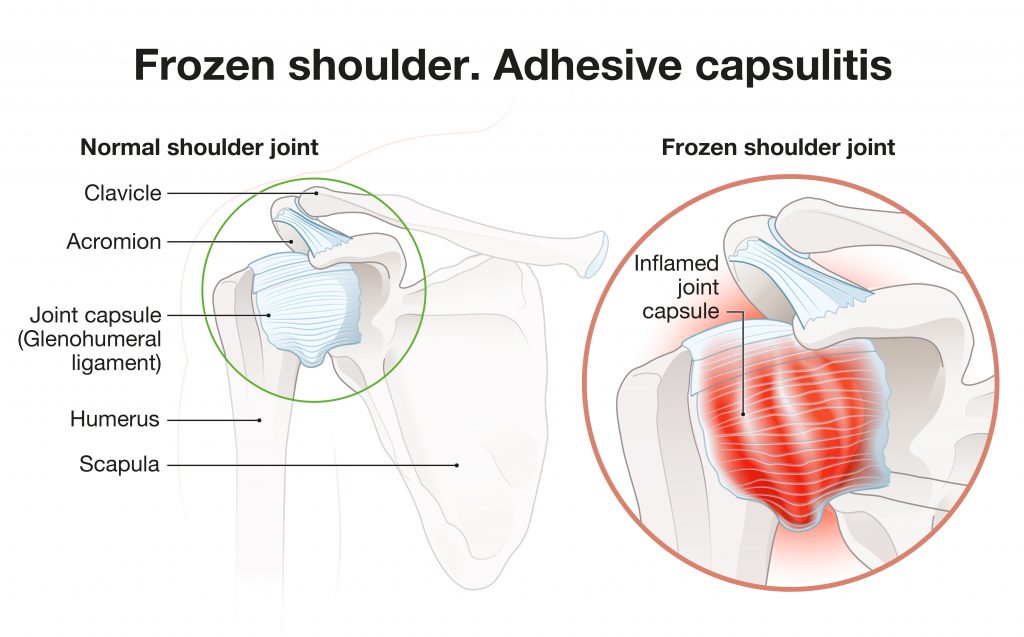
What is Frozen Shoulder?
Frozen shoulder also known as adhesive capsulitis, is a condition associated with pain and stiffness in the shoulder joint. It occurs when the capsule of connective tissue that surrounds the shoulder joint becomes thickened and inflamed, limiting the joint’s range of motion.
Who is at Risk for Developing Frozen Shoulder?
Frozen shoulder is more common in people over the age of 40 and those with certain health conditions such as diabetes and thyroid disorders. Other risk factors include direct injury to the shoulder, immobilisation of the shoulder due to injury or surgery, previous breast surgery with axillary involvement as well as prolonged use of a sling or brace.
Signs & Symptoms
Symptoms of frozen shoulder typically develop gradually and can last for several months to years. They may include pain and stiffness in the shoulder joint, difficulty moving the shoulder and sleeping on the affected side, and decreased Active and Passive Range of motion.
Diagnosis & Treatment
If you suspect you have frozen shoulder, it is important to seek medical attention from an orthopaedic specialist at Total Orthopaedic Care & Surgery. Our doctor will first ask you some questions about your condition, how it currently affects your lifestyle, and any associated medical conditions that may have increased your risk of frozen shoulder developing. He will then proceed with a careful examination of your shoulder and determine the extent of your functional limitation.
Radiographs of the shoulder joint involved are commonly performed and they may provide an indication of potential causes of your Frozen shoulder. Commonly, an MRI of the shoulder is also performed to evaluate other pathology.

Treatment for frozen shoulder typically involves a combination of pain management, medical management of underlying disease (if any eg. Diabetes control), intensive physical therapy, and in some cases, corticosteroid injections or surgery.
Pain management may include over-the-counter pain relievers or prescription medications. Physical therapy may involve stretching and range of motion exercises to help restore mobility to the shoulder joint.
At Total Orthopaedic Care & Surgery, we also offer the option of a Hybrid mode of physical therapy, combining in-person physical therapy sessions with a virtual physical therapy program.
Conclusion
Frozen shoulder can cause significant pain and disability in the affected shoulder joint, but it is treatable. It is important to work closely with your doctor to develop an individualised treatment plan that will help you regain full range of motion and return to normal activities as soon as possible. If you have any concerns about Frozen shoulder, do make an appointment with our experienced orthopaedic specialist here at Total Orthopaedic Care & Surgery. We are always here to help!




